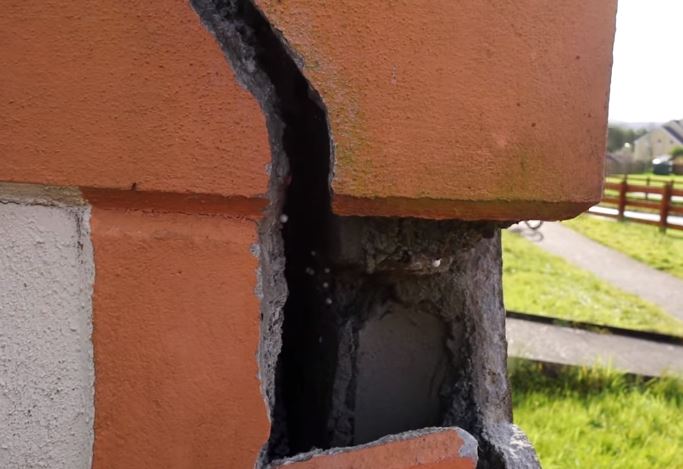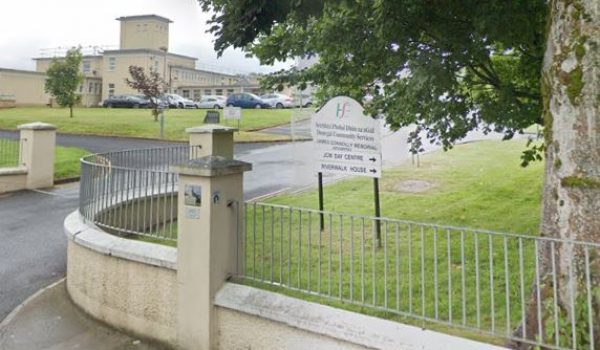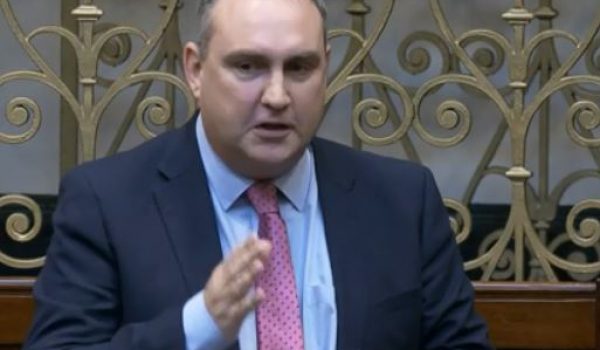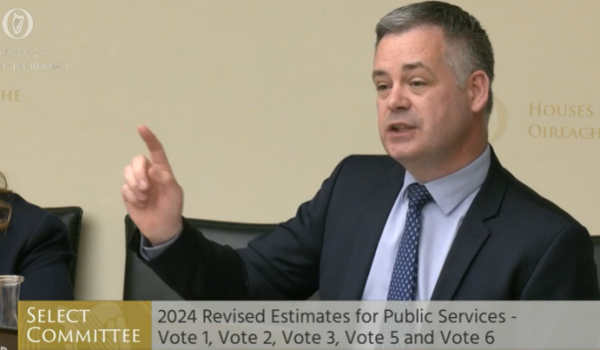
Donegal County Council is being urged to submit a detailed proposal to the Department of Housing for the use of Modular Homes to house those families most in need when their homes are being demolished or remediated due to Defective Blocks.
Service Director Patsy Lafferty told members that to date, the indications are that homeowners are looking at options including mobile homes, making arrangements with family, or sourcing private rented accommodation.
However, Cllr Gerry McMonagle who moved the motion said the council must be united in pushing this issue.
His motion was seconded by Cllr Martin McDermott, who chairs the council’s Defective Block Redress Committee:
Response to Motion from Cllr McMonagle – Background and Context:
‘The motion has been put forward in the context of concerns around the availability of alternative accommodation for families affected by defective blocks. The utilisation of modular homes has been suggested as a potential solution to assist in this regard. The issue has also been raised in the context of the fact that the Office of Public Works have been tasked with provision of modular homes to assist with the Ukrainian response.
To date, the indications are that homeowners are looking at options including buying or leasing mobile homes, making arrangements with family, or sourcing other private rented accommodation, depending on individual preference and circumstances.
It is also noted that significant accommodation options have been made available by the private sector in recent months, in response to assisting families fleeing the war in Ukraine. This has demonstrated that existing accommodation can be made available if appropriate incentives are in place.
It has been suggested that similar incentives would also assist families affected by defective blocks, and that there are significant properties including holiday homes available that could be utilised.
It is also worth noting that the recently announced scheme for repairing defective apartments could have an affect on the overall delivery of the defective blocks scheme.
Defective Concrete Block Scheme – current position on alternative accommodation. The Department does not currently plan to introduce modular homes as part of the solution for alternative accommodation that homeowners could use. The DCB Scheme is designed as a homeowner / engineer led scheme, with the onus being on the homeowner to source their own alternative accommodation.
The homeowner representatives lobbied hard to include payments for alternative accommodation (and not the supply of temporary buildings) in the enhanced scheme. In this regard, the Department is introducing an ancillary grant for homeowners to fund alternative accommodation (€15,000) and storage costs (€5,000), under the enhanced scheme.
In addition, in the context of broader supports to homeowners, the Department has approved funding for Facilitators, and whose role will include assisting homeowners to source or secure alternative accommodation. This Scheme therefore fundamentally differs from the Pyrite Remediation Scheme which is managed and overseen directly by a specific and dedicated Programme Manager (Housing Agency/Pyrite Remediation Board – HA/PRB). The HA/PRB plans and manages the whole process from end to end, which includes providing alternative accommodation for the homeowner.
Local Authority role and function – It is understood that the motion is not requesting the Council to provide alternative accommodation for private homeowners, but that a proposal be developed and a case be made to the Department for the introduction and use of modular homes under the DCB Scheme. However, it is important for clarity to reiterate what the Councils role and function is, as there appears to be a misperception that the Council has a role and function in providing modular homes under the DCB Scheme.
Under the DCB Scheme, the local authority role and function is to administer a grant scheme. The role and function does not involve local authorities providing alternative accommodation for private homeowners. Members will be aware that the key role and function of local authorities relates to social housing provision.
In the context of Housing for All, the Council is currently well advanced in the process of acquiring landbank for social housing that would cater for 400 to 500 social homes. Once this land is acquired the Council will require further resources to plan and deliver social housing on these sites, as we strive the meet and indeed exceed our social housing targets. It is very important that key staff are redirected to focus on the delivery of the Housing Capital Programme during the coming months.
As a social housing landlord in the county, with an estimated 1,000 tenants homes affected by defective concrete blocks, the Council has a role and function to remediate affected social homes and deal with the logistics around tenant relocation and so forth. This will be a significant task over and above normal social housing requirements, and the Council awaits Department approval to proceed with this significant task.
It is anticipated that the Council might require modular homes or some form of temporary housing in due course for accommodation of its social housing tenants.
In addition, while primary responsibility for the Ukrainian response rests with the Department of Children, Equality, Disability, Integration and Youth, the Council does have responsibility for coordinating the Community Forum locally as well as administering the new ‘Offer a Home’ Scheme.
The Office of Public Works has responsibility for the provision of modular homes under this Programme.
In conclusion, it is important that it is understood that the Councils role and functions relate primarily to social housing and administering grant schemes in respect of private housing. It does not extend to the provision of alternative housing for private homeowners.
It is suggested that any overall plan to provide modular homes for the many private homeowners affected by defective blocks would require an extensive analysis to be carried out on a range of issues including:
• the types of modular homes available, specifications, standards, and cost,
• suitability for temporary accommodation,
• information on all affected homes including those who have made grant applications and those who have not yet applied,
• the needs and requirements of individual homeowners,
• how they would be managed and maintained as different families move in and out,
• lifespan and what could they be used for in the longer term, when no longer required by homeowners,
• how would they be funded, rental arrangements etc.
• where would they be located and landowner agreements,
• connection to utilities such as water, sewer, telephone,
• proximity to other affected homes to allow reuse,
• scheduling of home reconstruction/repairs,
• movement of unit from one site to another,
• any other associated issues / implications.
It is anticipated that some private companies in the industry will be in a position to provide a selection of modular units in particular circumstance where the scale and timing of the demand suits. It is suggested that any such analysis should also consider other alternatives on a case by case basis.
In summary, the Council has no role and is not in a position to carry out the required analysis. Separately, it would not be appropriate for the Council to give the impression that it will be making proposals on behalf of homeowners to government.
Homeowner representatives already have a direct liaison link with government. It would seem that the Council should seek to support the homeowners in their liaison with government and work through the established arrangements.’ P. Lafferty, Director of Service.






